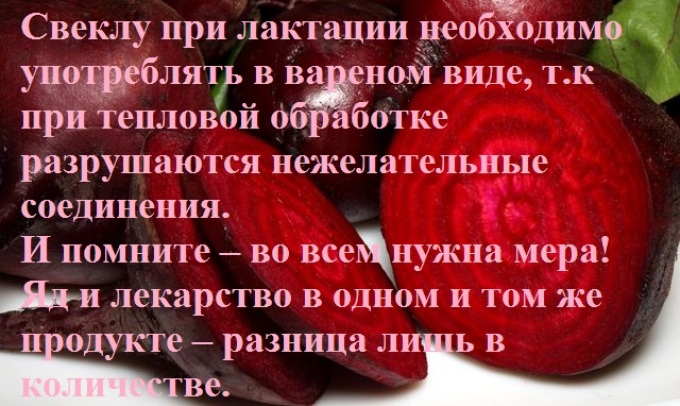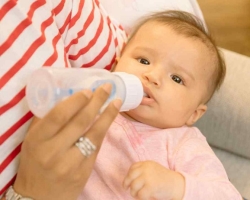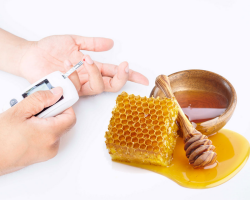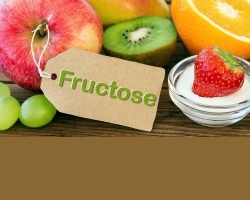Our article will tell you about the useful properties of beets for a nursing mother and baby, and also introduce information to how best to introduce this vegetable into your diet.
Content
- Is the beets an allergen?
- Can boiled beets be a nursing mother?
- Beneficial properties of boiled beets for mom and baby
- Beetroot during breastfeeding: From what month?
- Beetroot during breastfeeding in the first month
- Is it possible to eat beets every day at GV?
- Is there a beet with breastfeeding: Komarovsky
- Video: breastfeeding - School of Dr. Komarovsky
The birth of a son or daughter radically changes the life of a woman. And the point here is not only in sleepless nights and endless washing. In addition to all this, the young mother should carefully monitor her nutrition. After all, if she feeds her baby with breast milk, then her diet should consist only of those products that will benefit her baby.
For this reason, women who have only given birth should exclude a fairly large number of products that are at first glance from their diet. Usually, absolutely all fruits and vegetables that have red color fall into this list. Undesisively in the list of dangerous foods will fall as well.
Many young mothers consider her very harmful to their baby and refuse to use it even when it grows up a little. In view of this, let's figure out whether the beets are harmful to the baby’s body and when you can start eating it to a young mother.
Is the beets an allergen?

- Probably, many of us heard that the beets belong to allergenic products that affect the human body quite poorly. But in fact, this bright burgundy vegetable can rather be attributed to healthy foods. Since it contains a fairly large amount of vitamins, minerals and fiber, its regular use will help the body fight many diseases.
- You should not be alarming the red-burgundy color of this root crop, if you are consumed in small quantities, then this will not affect your baby’s well-being. In view of the foregoing, it can be said with confidence that there are no substances that can cause allergies in this fragrant root crop. But despite all this, a nursing mother should with caution introduced this product into her diet.

Can boiled beets be a nursing mother?
- Beetroot is a very useful product that is able to enrich the human body with vitamins and minerals all year round. It contains vitamins B, PP, C, amino acids, iron, calcium, magnesium and iodine, which are simply vital for both mom and her baby. The most important advantage of this vegetable is that even after heat treatment, it does not lose its beneficial properties. Moreover, it is boiled beets that are recommended to include in their diet to nursing women.
- It is believed that all pathogenic bacteria that can get into breast milk and harm the baby die in time in time of heat treatment. Therefore, if you plan to introduce beets into your diet, then be sure to cook it or steam it. This method of cooking will help you cook not only safe, but the most healthy dish that will saturate breast milk exclusively with the necessary substances.
Beneficial properties of boiled beets for mom and baby

- Beets contains a lot of iodine, which is necessary for the proper operation of the thyroid gland. For this reason, if the mother regularly eat this root crop, then her baby will have a thyroid, and her herself will quickly recover the hormonal background.
- High iron content contributes to a faster restoration of the female body after childbirth and reduces the risk of anemia in its baby.
- Its composition also contains a large amount of Honin, which is involved in the formation of the nervous system of the newly born child. In view of this, regular use of boiled beets will contribute to the fact that your baby will grow a mentally healthy person.
- Beetroot helps to fight constipation. Moreover, it helps to get rid of this problem not only to mother, but also to her baby. Substances that have laxative properties in large quantities fall breast milk, and contribute to the fact that the baby normalizes the function of emptying the intestine. Do not confuse with diarrhea. The beets do not cause diarrhea in the baby, and in the case of constipation, it will contribute to mild emptying.
Beetroot during breastfeeding: From what month?

- As you already understood the beets, if you cook it correctly, a nursing woman can eat without fear. But many young mothers have a question when it is best to put it into the diet. Some pediatricians allow women to eat beets through A few days after discharge from the hospital.
- They argue that vitamins and minerals that are contained in it will help both mother and baby as quickly as possible to restore his strength after childbirth and adapt to new living conditions. In principle, if you and your baby are completely healthy, then you can quite calmly introduce beets in your diet literally in the first month after childbirth.
- But remember that everything goes as smooth as possible, you need to eat exclusively boiled vegetable. First, boil a small root crop, wipe it or cut it into small pieces and eat without flavoring. If the baby does not have any reaction, the next time you can increase the portion and add oil and a little salt to the vegetable.
- In the first months of the baby’s life, you can only eat this root crop 2 times per week. As the baby will grow up, you will gradually increase the amount of beets in his diet, and you can also eat it 3-4 times a week.
- But all of the above concerns exclusively boiled beets. A raw vegetable for nursing mothers is contraindicated for the entire period of lactation. Without heat treatment, this product is very poorly absorbed by the gastrointestinal tract of women and against this background they may have problems with the pancreas and intestines.
Beetroot during breastfeeding in the first month

- Usually, in the first month after the birth of the menu of the nursing mother, it consists of a rather scarce set of products, consisting mainly of cereals and a small amount of green vegetables. But not only that such nutrition is quickly boring, so it does not saturate the body with all the substances that it needs to be restored after childbirth.
- A great way to diversify your menu is the beets. Due to the fact that this vegetable goes well with many products, you can supplement them with both the first and second dishes. In the first days after childbirth, it is permissible to eat no more 50 scope of beets per day. At first glance, it may seem that such a very small dose of vegetable will not bring any benefit.
- But still, even such a minimum amount of beets will have a beneficial effect on the digestive tract of the woman in labor and, most importantly, the most importantly will enhance the hematopoiesis. And it is precisely such a small dose that is unharmed for the baby in the first days of his life. Therefore, it will be better if the first 7-10 days You will eat beets in the most minimal quantities. Starting from the second week, it will be possible to gradually increase the portion of this vegetable in its diet.
- With each reception, add literally by 20 grams And all the time see how the child reacts to your actions. If he has a rash, then for a while, in general, exclude beets from your diet, and then begin to eat it with the amount of the amount in which you and the baby felt normal. If everything is fine, then by the end of the first month of your baby’s life you can eat up to 200 grams boiled beets per day.
Is it possible to eat beets every day at GV?

- In principle, boiled beets can be eaten quite often, but it is still not worth doing this every day. Indeed, even in the cooked vegetable there are approximately 50% of the coloring pigment, which is able to accumulate in the body of a woman. Therefore, if you eat beets every day, then it is quite likely sooner or later you will still see a rash on your child's skin.
- In view of this, it will be better if you try to cook dishes with beets at least every other day, and even better 2-3 times a week. But still, if you love this vegetable very much and cannot refuse it, then make sure that its daily dose does not exceed 250 grams. If you have problems with the liver, bile and kidneys, then you can’t eat beets every day. Even boiled vegetable in this case can aggravate your condition and, against the background of this, you can, in general, be abyss of breast milk.
- Also consider that beets affect the absorption of calcium. Therefore, if you eat this root crop every day, then your baby may not begin to receive it and this will immediately affect his well -being and development. In view of this, it will be, it is better if at least in the first months of your baby’s life you will try to eat beets not very often.

Is there a beet with breastfeeding: Komarovsky

- According to Dr. Komarovsky, during the period of the GV menu of a woman should be as diverse as possible. It should refuse only alcohol, nicotine, smoked, salty and fried products. Beetroot in the diet of a nursing mother should be present.
- Just a woman should eat her, courting the state of her health and the characteristics of the baby's body. But in principle, if both mom and baby are completely healthy, then this fragrant vegetable can be present in their diet from the very first days.
- But as mentioned above, you can eat it only after heat treatment. But a woman can begin to use raw beets only after she finishes her baby breast milk.
Video: breastfeeding - School of Dr. Komarovsky
- H then you can with breastfeeding - features of nutrition of a nursing mother
- Foamed chair in a child: causes, treatment. Why a foamy stool on breastfeeding?
- Can a pancake be a nursing mother? Pancakes during breastfeeding: pancake filling
- Clubs, black bread during breastfeeding: how to enter a nursing mother in the diet?
- Is it possible and how to properly introduce nuts in your diet with GV?
- What should be a chair for a newborn, on breastfeeding?
- Smoking and breastfeeding: harm to mother and baby.
- How is Aloe correctly? Is it possible to eat aloe pregnant women, with breastfeeding?
- Can cucumbers be nursing mom during breastfeeding?
- What cookies to choose during breastfeeding?
- Is it possible to eat basil during pregnancy and breastfeeding?
- Green tea with jasmine: benefit and harm, is it possible to drink with breastfeeding
- Is it possible to eat tomatoes nursing mom during breastfeeding
- Hurmam for nursing mothers during breastfeeding
- Is it possible to eat green and red apples nursing mom
- Celery root and stalks: therapeutic properties and rules of use during pregnancy and breastfeeding
- My daughter is breastfeeding or 10 important commandments for my grandmother: important tips, what needs to be remembered?
- How to lose weight during breastfeeding: important rules.
- Which tea is better to drink to enhance lactation to nursing mothers?
- Is it possible to eat raw and fried sunflower, pumpkin, sesame seeds, Kozinaki nursing mom during breastfeeding?
- Halva during breastfeeding: Can halva be a nursing mother?
- When necessary and how to improve breast milk production: drinks and products that increase lactation
- Is it possible to eat eggs when feeding a newborn breast milk?
- Is it possible to drink wine or champagne during breastfeeding?
- Is it possible to bay leaf during pregnancy and breastfeeding?
- Is it possible to eat garlic for pregnant women who feed mom during breastfeeding?
- Is sorrel useful during pregnancy, breastfeeding?
- Do I need to breastfeed your baby: Advantages
- What to do with the chest when you quit feed: tablets, medicines and folk recipes.
- Feeding twins or twins at the same time: lessons for mothers, tips, step -by -step guides
- How to treat cracks on nipples: folk recipes and pharmacy products
- Treatment of colds when breastfeeding folk remedies
- Vinegret salad: Best recipes. Classic vinaigrette with peas
- The calorie content of the vinaigrette is 100 grams. Is it possible to eat vinaigrette when losing weight?
- How to quickly cook beets? How much time to cook beets for vinaigrette?
- How and how much to cook young potatoes for salad Olivier, vinaugrated?
- A combination of vegetables, fruits in salad: Rules, table
- What should be on the festive New Year's table: the best New Year's recipes for festive snacks, salads, desserts, meat dishes
- How much can boiled beets in the refrigerator be stored?
- Borsch with meat and without meat: the best recipes.
- Lessitry products fruits and vegetables for constipation, for weight loss: a list, recipes of drinks and dishes with a laxative effect on the intestines.








The author who wrote this article decide whether a laxative effect is transmitted. The picture about beets says that no, and later, in the text, it is already written that beets helps with constipation and mother and baby ...